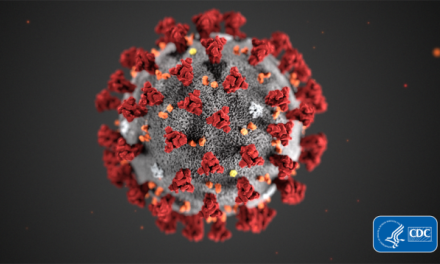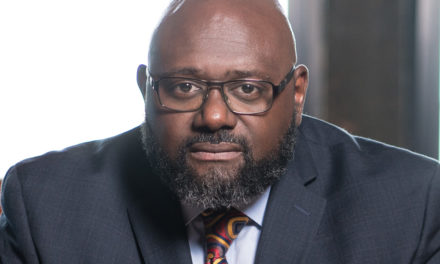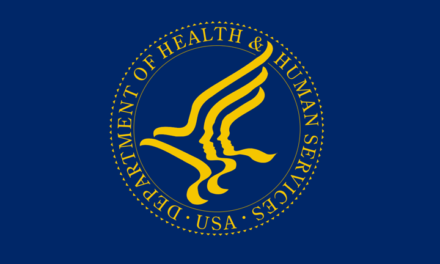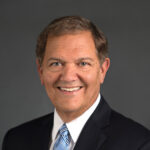
On the record with Chicago ARC’s Kate Merton
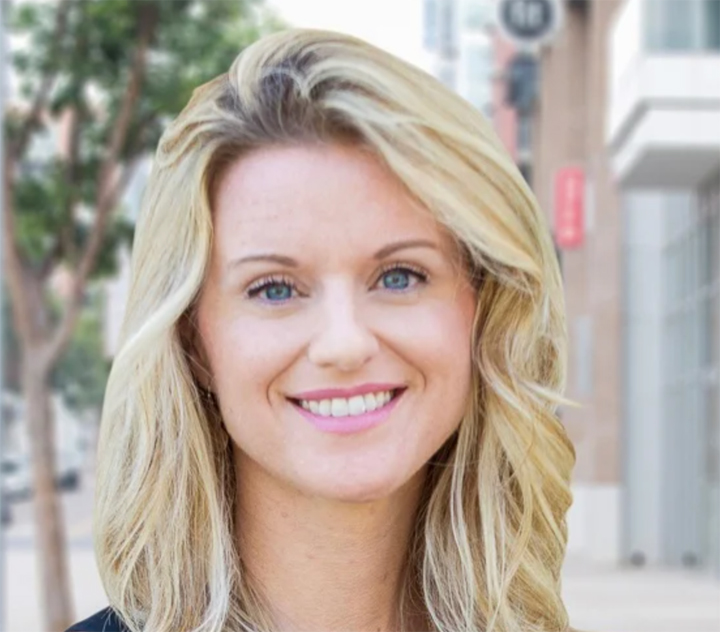
The Chicago ARC recently launched as a venture collaborative focused on accelerating health equity solutions.
It has since partnered with eight health systems, universities and senior living groups. More are set to join in the near future, Kate Merton, Chicago ARC’s executive director, recently told Health News Illinois.
She spoke about the unique efforts by the collaborative to find solutions that can apply in communities across the globe, as well as unique challenges to improve health equity in Chicago and what policymakers can do to support such ventures.
Edited excerpts below:
HNI: Tell me a bit more about Chicago ARC and the work it’s doing.
KM: So Chicago ARC is a venture collaborative where we — a VC will normally make investments in tech and then try and plug it into the ecosystem — turn everything around. I’ve got a background in running incubators and working in healthcare. And so what our team tries to do is truly understand the needs on the ground from a health equity perspective. So we ask health systems, community groups and other corporate partners working in the space, ‘What is it that you see could be improved in the very near term using digital health or new medical devices?’ They give us that list. We are going to invest in that technology using the funds that we’re raising, and then the different health systems such as Sinai Chicago, they’ll be implementing the technology. And then in the long term, we will be giving some of the profits from the funds back to the local community. The rationale for doing that is that healthcare and your experience of healthcare actually stem from where you were born, your education, the chances you were given in life and all that kind of thing. So even though we can help in the near term with help with our investments, in the long term, we actually truly believe that the community are the best people to solve for that and therefore giving them support to do that in the long term is the best way to try and help some of the deficits that we see in Chicago and in the Midwest.
HNI: How do you work together with your partners toward this larger goal?
KM: We actually work with our groups in two ways. The first one is individually, because they themselves say, ‘Hey, this is what’s going on in my system. This is what’s going on in my community. These are the needs that we have.’ And we’re very happy to help them with the tech that we see from Israel and other places. And then the second way is that patients will go to more than one health system. There are problems that need to be solved in Chicago that aren’t just going to be solved by one system alone. And we bring them together every quarter. And they talk amongst themselves about what do they actually see as the greatest priority amongst them to work on … and they also say, ‘OK, these are things that we want to see new solutions and technology brought in and we’ll actually work on it together.’ So we do it in two ways. One is sort of individual, and then one of them is quite unique because bringing health systems together in Chicago is not the easiest thing. And we’re really, really excited that so many come together and decided that this is what they want to do, and they tell us how we can help.
HNI: How does this build on the existing ARC model?
KM: So one of our partners is Sheba Medical Center, and that is the largest health center in Israel. They’ve done a lot of work to deal with some of the technology we’ll be seeing. But they’re not our only partner. We work with other groups in Israel and around the world, but they have their own accelerating, redesigning and collaborating in healthcare. That’s sort of where the original ARC acronym comes from. And even though we’re not exactly the same as their model, we actually thought that was actually a great way to describe it, because we see ourselves as that arc of things that need to get out into the health system, but we see sources from other places. So the ARC methodology comes from Sheba Medical Center in Israel, but Chicago ARC, we’re actually kind of like a separate entity, but they’re one of our partners.
HNI: What’s the current work being done by Chicago ARC?
KM: So the last year we’ve spent the time to connect with all of the different health systems and decide if the partnership would be useful to them. And then in addition to raising the $100 million fund, one of the reasons I’m traveling right now … It’s actually so that we connect up with other sources of technology… We’re primarily here right now to meet with other startups that we think their tech could be rapidly used in Chicago with our partners.
HNI: When do you think we may start seeing tangible things coming out of the collaborative?
KM: So in addition to sort of the investment in technology, which we anticipate early next year, the other things that we’re going to be doing are just the practical things that we know that we can do — the cross learning. So let’s say, for example, Sheba Medical Center in Israel has already worked out how to do remote patient monitoring when it comes to cardiac rehab. And we know that one of our partners here in Chicago would like to learn more about how they do it. We don’t have to wait for an investment fund to invest into (research and development) to make that happen. We can immediately organize an event and a Zoom and actually get those different institutions on a call and they start just being able to share information about how they do things. So we anticipate that happening in the next couple of months. The other thing that we found, which is really interesting, is that all of these systems, they’re doing really great work and they’re incredibly busy. And sometimes they just don’t have the time to understand what each other does best. So when we have our first meetings where we put them all together, one of them was like, ‘Oh, I didn’t know you were good at that. I should probably sit down and learn from you.’ And so what we’re planning to do at the end of next month is to organize a visit, collecting some of the health systems to go and visit another one, see some of the great simulation capabilities at OSF HealthCare. That will be something tangible. So the investments should happen early next year. But even before that, we’re actually getting ready with some sort of practical sharing of best practices.
HNI: What are some of the biggest challenges to improving health equity in Chicago?
KM: So my career, most of my adult life, I’ve lived in California. I’ve also worked on the East Coast. So that’s been my experience in those other markets. And I think when we come to Chicago, the unique thing for me, and this is the reason why I took this role, it’s so important to me, is that you do see that there is quite a large life expectancy discrepancy. It’s well-documented. And the expectations that an African American mother can have on the south side of Chicago — she has a tough time to sometimes receive the quality of care that she really should. I think from a health equity perspective, there are opportunities there, maternal care, chronic disease, treatment post-trauma. That is actually one of the things that’s kind of risen to the top when we speak to our health systems. They say, ‘Families and individuals have had to either deal with episodes of trauma such as gun violence or chronic trauma that they experienced at home.’ That changes the way that they want to receive healthcare, and health systems are cognizant of this and they want to make some effort. So I think in Chicago, we see that there are some specific things that are unique to the city. But then there are also things that you’re going to see in other places like Oakland or Baltimore. And if we can get them solved here in Chicago, and get the things supported, then hopefully we can kind of scale those companies, kind of like Chicago leading the way, instead of being the Second City, as it is often described. I think when it comes to health equity, there’s actually a really great opportunity because these health systems have come together.
HNI: What more can policymakers do to help?
KM: So from a policy perspective, I think providing funding for health equity-related research. They already do a good job of that, but making sure that that is fully supported. And then when there are initiatives that are identified where there are clear outcomes that need to be changed and how technology can help in that, make funding available for that. There are things around telehealth … when it comes to remote patient monitoring and introduction of telehealth, that could also have a role in health equity. One that actually comes to mind, although it’s not directly healthcare, is when you think about people’s access to wireless and communication tools, if you don’t have basic access to wireless and that sort of thing, it’s going to be tough to use some of the tools. So I think the policymakers, they need to be aware of the health equity, the funding for research and tools to combat that, and then things that underlie how people receive healthcare, and that’s around sort of education and access to WiFi and things like that.






